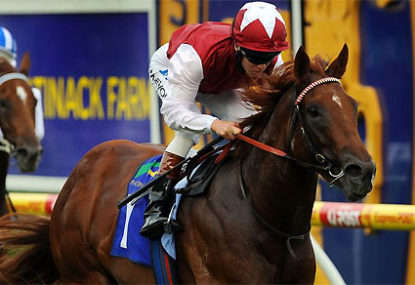As one of history’s oldest sports and participated in across the globe, horse racing possesses all the criteria required to become an Olympic sport of the future and should be considered for 2020.
At present, minor roadblocks exist which prevent horse racing to be sanctioned an Olympic event for Rio 2016 but all of these can be overcome by 2020.
Participated in on every continent barring Antarctica, horse racing is more closely followed than many existing Olympic events such as archery, judo or shooting, which are all longstanding Olympic events.
A number of non-Olympic sports such as chess, korfball, polo and wushu are recognised by the International Olympic Committee (IOC) but not allocated as one of the 28 summer Olympic sports.
The first step horse racing must take if it were to be considered for an Olympic event would be to have an international governing body.
At the present moment, the International Federation of Horse Racing Authorities (IFHA) is the closest thing to a global governing body with 59 member countries but their influence on global operations is minimal.
Instead, countries which host horse racing essentially do their own thing and coordinate bilaterally without the cooperation of IFHA.
The majority of work is done with Europe as a central hub and key links to Australia, the United States, Hong Kong and Dubai.
Since 1912, there have been at least five different equestrian events each Olympics formed by a combination of dressage, eventing and jumping.
Throughout the years, there have been suggestions that equestrian does not deserve its place in the Olympics due to the non-human factor of a horse contributing so much to the result.
The Olympics has traditionally been a test of speed and strength of humans and those unfamiliar with the art of horse riding are the first to declare dressage as the most undeserving event of Olympic status.
Like equestrian, horse racing is strongly dictated by the ride horses of given by their jockeys, who would ultimately be the medal winners.
Good rides win races and bad rides are very costly. Chemistry between a horse and its jockey are often overlooked by seasonal supporters for the sport.
One of my favourite jockey performances was the 2009 Caulfield Cup when Brad Rawiller risked everything to weave the narrowest gaps along the rail and steal victory aboard Viewed.
Had a ride like that been produced by a jockey with the hopes of a nation behind him, it would do wonders for the promotion of sport globally.
It also would have showcased the strength required by jockeys to succeed in the world’s most dangerous sport.
Such global exposure has the potential to turn seasonal supporters into much more.
Logically, timings would be tight but there is certainly enough time for there to be a competitive horse racing carnival at the Olympics which would be tightly contested, where even minnow racing countries would have a chance of winning.
For a competitive competition, a minimum of two races must be contested to ensure there was some sort of qualification process.
Normally spanning three weeks of competition, horses could compete early in the carnival for a final field of their event later in the carnival.
To make the event fair and in line with Olympic spirit, events would have to strictly weight-for-age to ensure the best horse wins.
At present, International Day at Sha Tin in Hong Kong is held each December where horses from all over the world compete under weight-for-age conditions over 1200m, 1600m, 2000m and 2400m.
If replicated identically, this would create four Olympic medal events.
The Breeders Cup in the US gathers most of the best talent from the northern hemisphere each year but due to its timing clash with the Australian spring, it fails to attract any talent from the southern hemisphere.
While an Olympic carnival ideally creates an answer to the ever-lingering questions surrounding the world’s fastest horse, it may be presumptuous to assume racing powerhouses will always send their fastest horses.
In a sport driven by prize money, there would need to be a significant purse on offer for the winners who may not value gold medals as much as winning historical races.
It’s an issue which has clouded the value of winning Olympic tennis events where grand slams are much more valuable than Olympic gold.
Winning gold for your nation is all fine and dandy but competing sending a horse to the Olympics will derail most in-country campaigns and trainers are always wary of sending good horses overseas.
This however is the question mark over most good horses – would they have succeeded overseas?
Horse racing is an international event which possesses more Olympic traits than several existing Olympic events as well as existing rivalries between countries.
Down the track, it would be great to see jockeys competing in the national silks of their nation on the global stage.





























































































